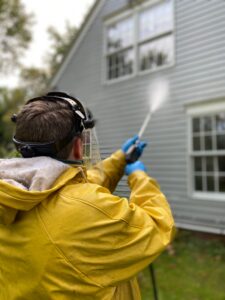Maintaining clean and healthy indoor air is essential for the well-being of you and your family. One simple yet often overlooked aspect of indoor air quality is regularly changing your air filters. In this blog, we will explore the importance of changing air filters, the benefits it brings to your home, and how it contributes to a healthier living environment. Make sure you look at your current filter for proper size before purchasing and don’t assume that if you have two units that they take the same size.
1. Enhancing Indoor Air Quality:
Air filters play a vital role in improving indoor air quality by capturing and trapping airborne particles. Over time, these filters become clogged with dust, pollen, pet dander, mold spores, and other pollutants. By changing your air filters regularly, you ensure that the air circulating in your home is clean and free from harmful contaminants.
2. Improved Respiratory Health:
Dirty air filters can significantly impact respiratory health, especially for individuals with allergies, asthma, or other respiratory conditions. When filters become clogged, they restrict airflow and allow pollutants to recirculate in your home. By regularly changing your air filters, you reduce the presence of allergens and irritants, providing relief for those suffering from respiratory issues.
3. Energy Efficiency and Cost Savings:
Dirty air filters can impede the airflow in your HVAC system, causing it to work harder and consume more energy. When your system works inefficiently, it leads to increased energy bills and potential wear and tear on your equipment. By regularly replacing your air filters, you maintain optimal airflow, improve energy efficiency, and potentially save on utility costs.
4. Extended Lifespan of HVAC Equipment:
A clogged air filter puts extra strain on your heating and cooling system, potentially leading to premature wear and tear. Over time, this can result in costly repairs or even the need for a complete system replacement. By changing your air filters regularly, you reduce stress on your HVAC equipment, allowing it to operate more efficiently and prolonging its lifespan.
MADE IN THE USA
5. Improved Cooling and Heating Performance:
When air filters are clean, they allow for better airflow throughout your home. This means your HVAC system can efficiently distribute cool or warm air, ensuring consistent and comfortable temperatures. By regularly changing your air filters, you optimize the performance of your cooling and heating system, providing a more comfortable living environment.
6. When to Change Your Air Filters:
The frequency of air filter changes depends on several factors, including the type of filter, the number of occupants, the presence of pets, and indoor air quality. As a general guideline, it’s recommended to check your air filters every month and replace them at least every three months. However, in households with pets or allergies, more frequent filter changes may be necessary.
7. Choosing the Right Air Filters:
When selecting air filters, consider the Minimum Efficiency Reporting Value (MERV) rating. A higher MERV rating indicates better filtration capabilities. However, higher MERV-rated filters may also restrict airflow, so it’s important to choose a filter compatible with your HVAC system. Consult your system’s manufacturer or an HVAC professional for guidance.
MERV 13
Regularly changing your air filters is crucial for maintaining clean and healthy indoor air quality. By doing so, you enhance respiratory health, improve energy efficiency, extend the lifespan of your HVAC equipment, and enjoy a more comfortable living environment. Make it a priority to check your air filters regularly and replace them as needed, keeping the air in your home fresh and pollutant-free.
Other options for air quality: You might also entertain the use of a air purifier to clean the air even before it reached the air filter of your HVAC unit.


